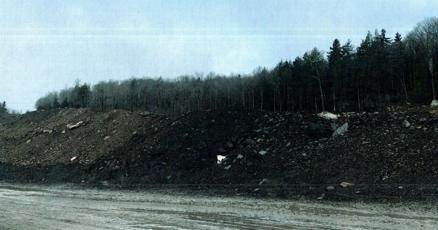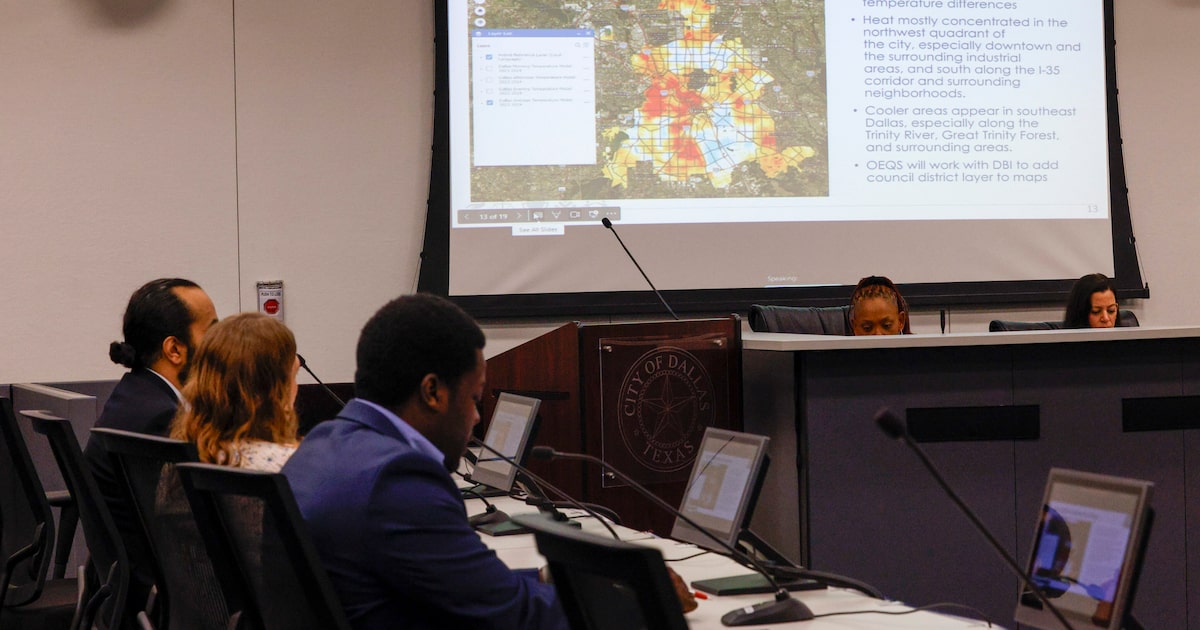Toxic Legacy: How One WV Coal Company's Repeated Environmental Sins Vanished in Bankruptcy
Environment
2025-03-25 09:45:00Content

In a troubling environmental saga, South Fork Coal Company LLC has emerged as a serial offender, accumulating a staggering record of environmental violations that have raised serious concerns about its operational practices in West Virginia's Greenbrier County.
The coal company's alarming track record reveals a pattern of repeated environmental infractions, with state records showing a dramatic escalation in recent months. Since 2015, South Fork has amassed an eye-opening 138 violation notices and 27 cessation orders across its 17 permitted sites, spanning approximately 3,700 acres in the Gauley and Upper Kanawha River watersheds.
Most alarmingly, the company's environmental negligence has sharply intensified in 2024. Just in the first few months of the year, South Fork has already received 45 separate notices and orders, including 34 violation notices and 11 cessation orders that effectively halted operations due to unresolved environmental issues.
The violations predominantly center on critical environmental management failures, including poor drainage and sediment control, inadequate land restoration, and widespread erosion problems. These repeated infractions not only highlight the company's systemic environmental mismanagement but also raise significant questions about the potential long-term ecological impact on the region's sensitive river ecosystems.
The company's bankruptcy and subsequent legal maneuvering have further complicated efforts to hold South Fork accountable for its environmental transgressions, leaving environmental advocates and local communities deeply concerned about the potential consequences of such persistent environmental negligence.
Environmental Reckoning: The Unfolding Crisis of South Fork Coal Company's Regulatory Collapse
In the rugged terrain of West Virginia's coal country, a brewing environmental storm threatens to expose the systemic challenges facing the state's mining industry. The story of South Fork Coal Company LLC represents more than just another corporate bankruptcy—it's a stark illustration of regulatory failures, environmental degradation, and the complex interplay between economic survival and ecological responsibility.Uncovering the Hidden Environmental Toll of Coal Mining Operations
The Mounting Regulatory Challenges
The landscape of environmental compliance in West Virginia's coal industry has become increasingly fraught with complexity and tension. South Fork Coal Company's trajectory reveals a troubling pattern of systematic environmental infractions that extend far beyond mere administrative oversights. With an astonishing 138 violation notices and 27 cessation orders accumulated since 2015, the company has demonstrated a persistent disregard for environmental regulations. The geographical scope of these violations is particularly alarming. Spanning approximately 3,700 acres across the Gauley and Upper Kanawha River watersheds, South Fork's operations have consistently challenged the delicate ecological balance of the region. The Department of Environmental Protection's records paint a damning picture of repeated and escalating environmental transgressions.Escalating Violations and Regulatory Breakdown
The most recent data reveals a dramatic acceleration of environmental infractions. In the first months of 2024 alone, the company has accumulated 45 separate notices and orders—a staggering 34 violation notices and 11 cessation orders. These are not mere bureaucratic technicalities but critical interventions designed to halt potentially destructive mining practices. Specific areas of concern include chronic failures in drainage and sediment control, systematic neglect of revegetation efforts, and persistent issues with erosion management. Each violation represents a potential threat to the region's delicate ecosystem, water resources, and long-term environmental sustainability.Legal and Economic Implications
The company's bankruptcy has triggered a complex legal landscape, with federal lawsuits being set aside and environmental protections potentially compromised. This situation exposes the fragile relationship between industrial operations, regulatory oversight, and environmental preservation. The broader implications extend beyond South Fork Coal Company. This case serves as a microcosm of the challenges facing extractive industries in environmentally sensitive regions. It raises critical questions about corporate accountability, regulatory effectiveness, and the long-term sustainability of traditional mining practices.Watershed Impacts and Ecological Consequences
The Gauley and Upper Kanawha River watersheds represent more than geographical boundaries—they are living ecosystems with intricate biological networks. South Fork's repeated violations threaten not just the immediate environment but the broader ecological infrastructure that supports diverse plant and animal life. Each cessation order represents a moment of potential ecological recovery, a brief respite that allows natural systems to begin healing from industrial intrusion. However, the cumulative impact of years of environmental negligence cannot be easily reversed.Systemic Challenges in Environmental Regulation
The South Fork Coal Company case illuminates deeper systemic issues within environmental regulation. It demonstrates the ongoing struggle between economic interests and ecological preservation, highlighting the need for more robust, proactive regulatory frameworks. The frequency and severity of violations suggest a fundamental disconnect between corporate practices and environmental stewardship. This is not merely a problem of individual corporate behavior but reflects broader structural challenges in how industrial operations are monitored and managed.Future Outlook and Potential Reforms
As the story of South Fork Coal Company continues to unfold, it serves as a critical case study for policymakers, environmental advocates, and industry stakeholders. The path forward requires a comprehensive reevaluation of current regulatory mechanisms, more stringent enforcement protocols, and a genuine commitment to sustainable industrial practices. The environmental challenges represented by this single company are emblematic of larger, more complex issues facing extractive industries in environmentally sensitive regions. Addressing these challenges will require unprecedented collaboration, innovative regulatory approaches, and a fundamental reimagining of the relationship between industrial development and ecological preservation.RELATED NEWS
Environment

Hearts, Minds, and Mother Earth: A Valentine's Day Prescription for Planetary Passion
2025-02-14 14:17:21
Environment

Behind Closed Doors: NWSL Launches Probe into Bay FC's Alleged Workplace Turmoil
2025-03-07 20:45:13
Environment

Green Revolution: USC Ignites Campus-Wide Climate Consciousness During Earth Month Extravaganza
2025-03-31 07:05:00





